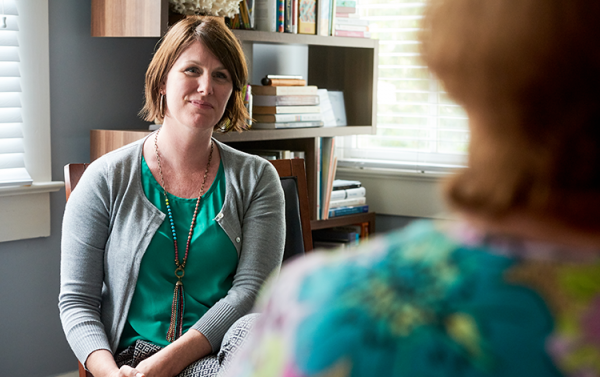Mental Health and Well-Being
Why does it matter?
Mental Health and Well-Being is important to the community because the health of the community begins with the well-being of the individual. The World Health Organization (WHO) defines mental health as a “state of well-being in which the individual realizes his or her own abilities, can cope with the normal stresses of life, can work productively and fruitfully, and is able to make a contribution to his or her community.” It is in our very nature to seek community.

When dealing with mental illness, there is a sense of isolation or disconnectedness to the whole. This affects how we interact with the community and our ability to contribute to the community. The sense of community and belonging provides support and can have a positive effect on mental health and emotional well-being. This reflects the fact that many factors outside the healh care system impact the health of individuals including neighborhood, environment, and socioeconomic status. Health care experts are now looking at the broader forces that combine to make someone healthy or not. Threats to safety (gun violence or environmental hazards), bullying, and prolonged stress can have significant impacts on a person’s physical and mental health.
Where are we now?
In the dashboard, community indicators for Mental Health and Well-Being include the Baker Act Rate, which represents the total number of involuntary mental health examinations as defined under Florida’s Baker Act, and the community’s suicide rate. In our community, the Baker Act Rate has remained stagnant in the past few years. Our community’s suicide rate peaked in 2020 and has fluctuated since.
While these indicators have decreased, the leading indicator of reported mentally unhealthy days within the past 30 days has increased to 4.15 days in 2020. With no change in 2018–2019, it is possible that the COVID-19 pandemic affected 2020 responses. Our community has responded to the increased need for mental health services as evidenced by a growing rate of licensed mental health counselors and psychologists. We also looked at drug and alcohol use, misuse, and abuse as these are often linked to the mental health of the community as individuals or as a whole.
How do we measure it?
Mental Health & Well-Being refers to an individual’s emotional, psychological and social state. This impacts every aspect of our lives including how we think, feel, act and handle stress. Our mental health is important at every stage of our life and is influenced by a number of factors such as biological factors (genes & brain chemistry), life experiences including trauma or abuse, and family history of mental health problems.
- Baker Act Rate: “Baker Act Annual Report 2016/2017,” USF Library Maps, University of South Florida, 2021, Database accessed via https://www.usf.edu.
- Licensed Psychologists: “Licensed Psychologists,” Florida Department of Health, Florida Health Charts, 2021, Database accessed via https://flhealthcharts.com.
- Licensed Mental Health Counselors: “Licensed Mental Health Counselors,” Florida Department of Health, Florida Health Charts, 2021, Database accessed via https://www.flhealthcharts.com.
- Reported Poor Mental Health Days: “Adults who had poor mental health on 14 or more of the past 30 days,” Florida Department of Health, Florida Health Charts, 2021, Database accessed via https://flhealthcharts.com.
- Suicide Rate: “Suicide Deaths,” Florida Department of Health, Florida Health Charts, 2021, Database accessed via https://www.flhealthcharts.com.
- Age Adjusted Death by Accidental Drug Poisoning: “Unintentional Injury Deaths by Drug Poisoning,” Florida Department of Health, Florida Health Charts, 2021, Database accessed via https://flhealthcharts.com.
- Youth Tobacco Use: “Percent of students who have ever tried cigarettes, cigars, hookah, electronic vapor products, flavored cigarettes, or flavored cigars,” Florida Department of Health, Florida Health Charts, 2021, Database accessed via https://flhealthcharts.com.
- Adult Smokers: “Adult Smokers,” Florida Department of Health, Florida Health Charts, 2021, Database accessed via https://flhealthcharts.com.
What call to action is linked to this indicator?
As a community, our call to action is to support those who are dealing with mental illness by ensuring access to community resources and services and promoting a sense of community and connectedness to all. Additionally, it is important that we fight the stigma of mental illness through compassion, conscious language, education and open dialogue.
The coronavirus pandemic impacted many more citizens through isolation, fear, loss of loved ones, loss of employment, and generalized anxiety. Increased use of opioids or stimulants was reported by the American Psychological Association. Addressing these mental health challenges will be necessary for many years to come.
Reference for this call to action:
Czeisler, ME, RI Lane, and E Petroshky, et al. 2020. “Mental Health, Substance Use, and Suicidal Ideation During the COVID-19 Pandemic — United States.” Morbidity and Mortality Weekly Report. 69:1049-1057. DOI: http://dx.doi.org/10.15585/mmwr.mm6932a1